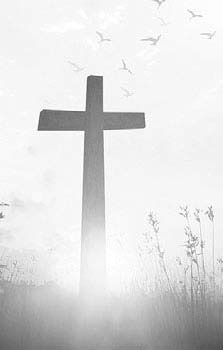Last week we began to scratch the surface of a story that goes back to the very basement of time: the story of the Jewish people.
Since the idea of “history” is defined by Oxford as “the whole series of past events connected with someone or something,” then the Jewish story is not merely a story, but is a “history” told by the Jewish people of their past, their relationship with Yahweh, and their prophetic expectations for the future. In short, it is what the Christian theologian Kavin Rowe calls; the story of everything.
You see, whether we realize it or not, we all have in our own mind a story; our own understanding about the story of everything. Even the Bible skeptic Michael has his own story of everything. The story of everything is a story about all that there is. It is a story about God, and all that God created because that is all that exists.
All other stories that are told are told from inside of the story of everything. There is no wider story, there is no broader story that encompasses that story. It is the one story from inside of which all other stories can be told. And because it is the story of everything, it gives us answers to the most fundamental and important questions in life: Where did I come from?; what does it mean to be human?; what is my purpose in life?; what will happen to me when I die? Ultimately, these questions can only be answered by and through our story of everything. It is a story that begins and ends in a state of absolute perfection. But between the original perfection and that magnificent and future return to perfection, there is a great and horrible fall. In the Christian motif, we identify these movements of life that occur within the story of everything as Creation, Fall, and redemption through Christ. In that way, the event that consummates the perfect ending to the story is the resurrection of Jesus Christ. Even so, for many Jews, Jesus of Nazareth was not the long-awaited Messiah. In fact, for the orthodox Jew, the messiah has not yet come.
Nonetheless, this is the story of everything. It is a story that is as old as time itself. It is a progressive historical story that moves forward over centuries of time, through dozens and dozens of messengers and prophetic writers. Interestingly, biblical scholars have suggested hundreds of Old Testament prophesies of the coming Messiah.
However, many of the early prophies foretelling the coming Messiah are repeated in later prophesies. Therefore, and more accurately, biblical scholar Barton Payne lists some 127 unique Messiah predictions involving 3,348 Old Testament verses. No doubt, the Jewish story of everything that foretells the coming King and Messiah is well documented throughout Jewish history.
This climactic unfolding history of the world, according to both Jews and Christians, was first recorded by Moses in a group of writings collectively called the Pentateuch (Genesis, Exodus, Leviticus, Numbers, and Deuteronomy). It is from the historical writings in the Pentateuch (2nd millennia BC) that the Jewish and Christian claim of a promised Messiah is first revealed.
The first and foundational promise to mankind occurs in the Garden of Eden with God cursing mankind on the one hand for rank disobedience and providing redemption on the other. It is here God promises for the first time that a descendant of the woman (Messiah) will someday crush the serpent’s (Satan’s) head (Gen 3:15).
In Jewish history this is the promise that rings out through the generations. Sure enough, the messianic prophesies of the Pentateuch build a story envisioning, as Walter Kaiser summarizes, “the Messiah as coming from the seed of the woman (Gen 3:15), from the race of Shem (Gen 9:25-27), from the seed of Abraham (Gen 12:1-3) , from the tribe of Judah (Gen 49:812), from the sons of Jacob.”
Following Moses and the Pentateuch, subsequent Jewish prophets produced a multitude of historical writings between the ninth and fifth centuries BC. Among these writers were David’s extensive prophetic predictions in the Psalms, not to mention the offerings of the prophets, Joel, Obediah, Hosea, Micah, Amos, Jonah, Isaiah, Habakkuk, Zephaniah, Nahum, Jerimiah, Ezekiel, Daniel, Haggai, Zechariah, and Malichi.
Whether you are a Jew, a Christian, or an unbelieving Bible skeptic like Michael, this is quite an impressive list of ancient prophetic historians. And they all record and foretell the same coming Redeemer and Messiah. And yet, there is one ancient prophecy that stands at the apex of Old Testament messianic literature: the Suffering Servant.
Join us next week as we dig deeper into the Jewish and Christian claim that the story of everything includes a suffering servant, come from the God of creation, to redeem mankind from their sin. It is a story steeped in history, that makes historical truth claims and therefore is a story that deserves our earnest consideration. All of this and more on the way to answer the fundamental question: is God dead?
Gloria in excelsis Deo!
Ty B. Kerley, DMin., is an ordained minister who teaches Christian apologetics, and relief preaches in Southern Oklahoma. Dr. Kerley and his wife Vicki are members of the Waurika church of Christ and live in Ardmore, OK. You can contact him at: [email protected].

.jpg)
